You are here:
- Home
- Andrew Bruckner, PhD
![]()
Andrew Bruckner, PhD
Former Chief Scientist of the Living Oceans Foundation
Bio
Andy was the Chief Scientist with the Living Oceans Foundation, where he implemented the field research component of the Global Reef Expedition. He organized and led field expeditions for the foundation to map, characterize and assess remote coral reefs in the Caribbean, Pacific, Indian Ocean, and the Red Sea. He received his B.S. in Biology from the University of Oregon, M.S. in marine biology from Northeastern University (Massachusetts) in 1988, and his Ph.D. from the University of Puerto Rico in 1999.
Andy is a native New Englander, growing up in Connecticut. Since high school, he has lived in Massachusetts, Oregon, Florida. During the 1980s he spent extended periods in Jamaica, and then lived there from 1990-1993, serving as Director of the Hofstra University Marine Lab. From 1994-1998, he lived on the south coast of Puerto Rico, spending as much time as possible underwater off La Parguera, Rincon and the uninhabited offshore islands of Desecheo and Mona. Andy has been living in Maryland since 1998 with his wife, Robin, 10 year old daughter, Haili, and 8 year old son, Dylan.
Prior to joining the Foundation, he divided his time between coral reef research, management and conservation, and policy development. He first established research sites in Jamaica in the 1980s, and in Bonaire, Curacao and Puerto Rico in the 1990s, and has continued to revisit these sites to better understand their trajectories. Over the last 25 years, he has also studied reefs in other Caribbean, Red Sea and IndoPacific locations.
Andy joined the NOAA Coral Reef Conservation Program in 1998 as a coral reef ecologist, helping develop and implement the first U.S. government led coral reef conservation program.
During his ten years with NOAA, he developed and served as the co-lead of NOAA’s Coral Disease and Health Consortium, conducted coral reef research, monitoring and restoration activities, and worked closely with resource managers and government agencies in the U.S. and internationally in developing conservation, management, and restoration actions for coral reefs. His efforts resulted in new U.S. legislation, sustainable management guidelines for the harvest of coral reef species, adoption of international (CITES) regulations and listings (seahorses, humphead wrasse, and corals), and listing of the first corals (elkhorn coral and staghorn coral) on the U.S. Endangered Species Act. He received a Presidential Early Career Award, Administrators Award, and three bronze medals from NOAA for his work on coral reefs.
Missions
- Al Wajh and Yanbu
- Andros, Bahamas
- Austral Islands, French Polynesia
- Cay Sal, Bahamas
- Chagos Archipelago
- Colombia
- Cook Islands
- Farasan Bank
- Fiji
- Galapagos Islands
- Gambier Islands, French Polynesia
- Great Barrier Reef
- Inaguas and Hogsty Reef, Bahamas
- Jamaica
- Kingdom of Tonga
- Navassa Island
- New Caledonia
- Palau
- Society Islands, French Polynesia
- Solomon Islands
- St. Kitts and Nevis
- Tuamotu, French Polynesia
Photos
-
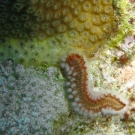
Bearded Fireworm
-
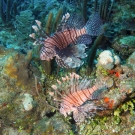
Common Lionfish
-
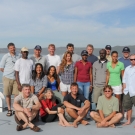
The Jamaica Science Team.
-
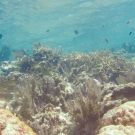
Coralscape with many types of coral and fish.
-
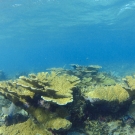
Elkhorn Coral
-
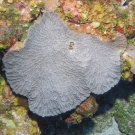
Knobby Cactus Coral
-
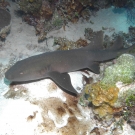
Nurse Shark
-
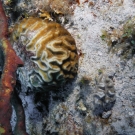
Rose Coral
-
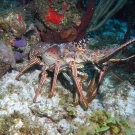
Caribbean Spiny Lobster
-
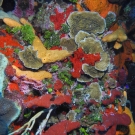
This scene contains many types of coral, algae, and sponges.
-
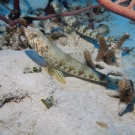
Sand Diver
-
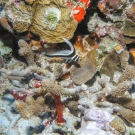
Jackknife Fish
-
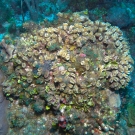
Smooth Flower Coral
-
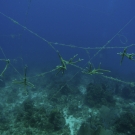
Staghorn Coral nursery.
-
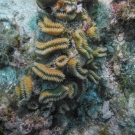
Smooth Flower Coral
-
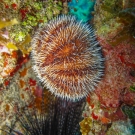
Variegated Urchin
-

The Golden Shadow docked in Jamaica.
-
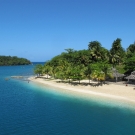
Beautiful coastline in Jamaica.
-
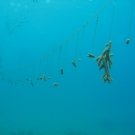
Staghorn Coral nursery.
-
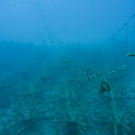
Staghorn Coral nursery.
-
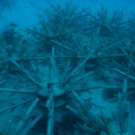
Staghorn Coral nursery.
-
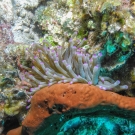
Giant Anemone
-
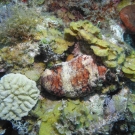
Donkey Dung Sea Cucumber with Maze Coral.
-
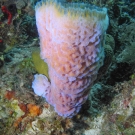
Azure Vase Sponge
-
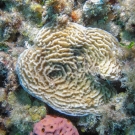
Low Relief Lettuce Coral
-
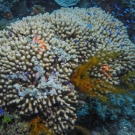
Eight-Ray Finger Coral with Golden Crinoid and Blue Chromis.
-
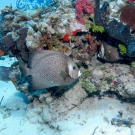
Gray Angelfish
-
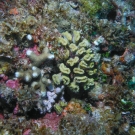
Finger Coral and Smooth Flower Coral
-
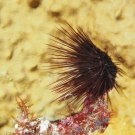
-

-
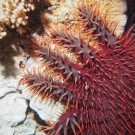
-
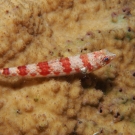
-
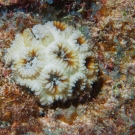
-
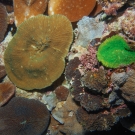
-
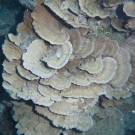
-
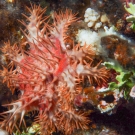
-
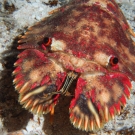
-
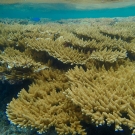
-
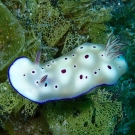
-
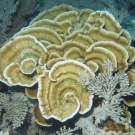
-
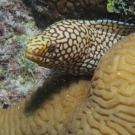
-
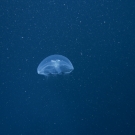
-
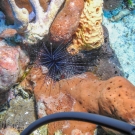
Long-Spined Urchin
-
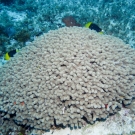
Finger Coral with Rock Beauties
-
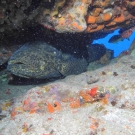
Goliath Grouper
-
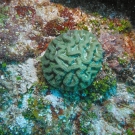
Sinuous Cactus Coral
-
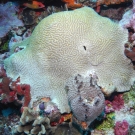
Symmetrical Brain Coral and Black Ball Sponge
-
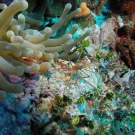
A Yellowline Arrow Crab and Giant Anemone
-
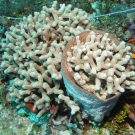
Finger Coral in a Leathery Barrel Sponge
-
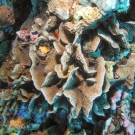
Thin Leaf Lettuce Coral
-
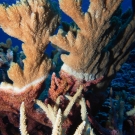
-
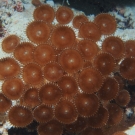
-
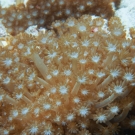
-
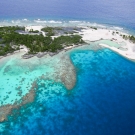
-

M/Y Golden Shadow, docked in Port Antonio, Jamaica.
-
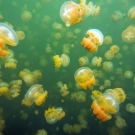
Jellyfish Lake, also known as Fifth Lake, is filled with millions of golden jellyfish (Mastigias papua etpisoni).
-
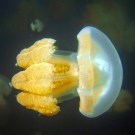
These jellies don't sting. They don't have stinging cells, which jellies often use to catch their dinner. Instead, these jellies host symbiotic algae in their tissues (zooxanthellae -seen in yellow) which provide the jellies with nutrients.
-
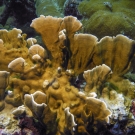
Blade Fire Coral
-
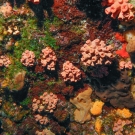
Orange Cup Coral
-
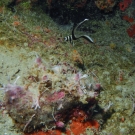
Juvenile Spotted Drum
-
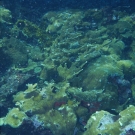
Elkhorn Coral
-
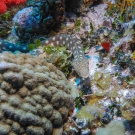
Sharptail Eel
-
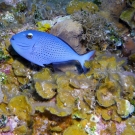
Sargassum Triggerfish
-
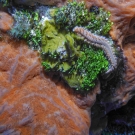
Bearded Fireworm
-
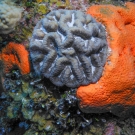
Sinuous Cactus Coral
-
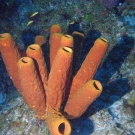
Yellow Tube Sponge
-
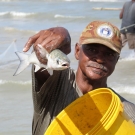
One of the fish (a mullet, family Mugilidae) caught in the village's beach seine net.
-
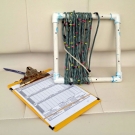
Coral reef survey equipment.
-
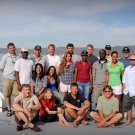
Our coral reef survey team for the Global Reef Expedition's mission to Jamaica.
-

Relatively small snappers, grunts, parrotfish, jack, and even a few invasive lionfish for sale at a local market (see coin for scale).
-
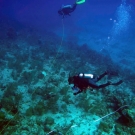
Divers on the Global Reef Expedition conducting a survey of commercially valuable lobsters and conch in Jamaica.
-
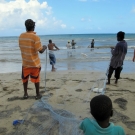
Men and boys pull in seine fishing net on the beach near their village.
-
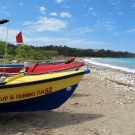
Local fishermen use small wooden boats to travel to reefs up to 10km from shore to catch fish to feed and support their families.
-
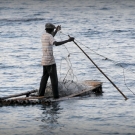
jamaaA man fishing from his raft in Jamaica.can-man-fishing-from-his-raft-at-pedro-bank
-
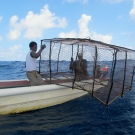
Jamaican fishermen release a large homemade Antillean Z fish trap near a coral reef.
-

A fisherman shows off his prize catch: a large snapper.
-
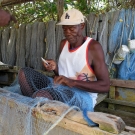
Back on shore, a fishermen mends his net.
-

A basket of herring (clupeidae) for sale at a local fish market on Jamaica's southern shore.
-
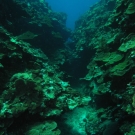
Coral reefs of Jamaica's Pedro Bank are some of the healthiest reefs in the country, but few large fish remain.
-
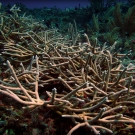
A thicket of healthy Acropora cervicornis (staghorn coral) coral blankets a reef within the new marine protected area on Jamaica's Pedro Bank.
-
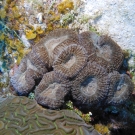
Atlantic Mushroom Coral
-
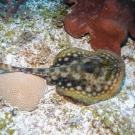
Yellow Stingray
-
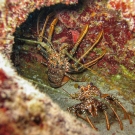
Spotted Spiny Lobster
-
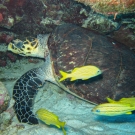
Hawksbill Turtle with French Grunts
-
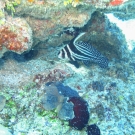
Spotted Drum
-
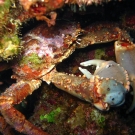
Channel Clinging Crab
-
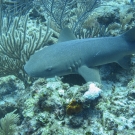
Nurse Shark
-
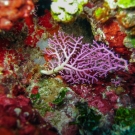
Rose Lace Coral
-
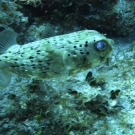
Balloonfish
-
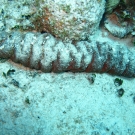
Donkey Dung Sea Cucumber
-
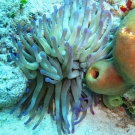
Giant Anemone
-
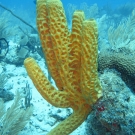
Yellow Tube Sponge
-
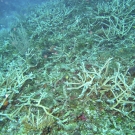
Staghorn Coral
-
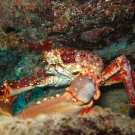
Channel Clinging Crab
-
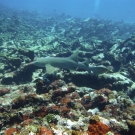
Nurse Shark
-
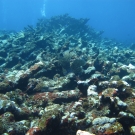
Elkhorn Coral skeletons.
-
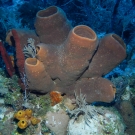
Brown Tube Sponge
-
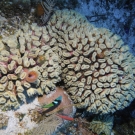
Smooth Flower Coral
-
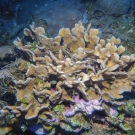
Lettuce Coral
-
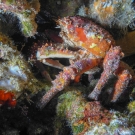
Channel Clinging Crab
-
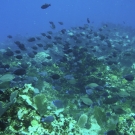
Ocean Surgeonfish dominate this coralscape.
-
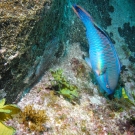
Princess Parrotfish
-
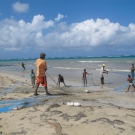
Local fisherman who worked with the Foundation to help set up fish sanctuaries.
-
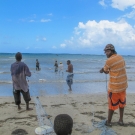
Local fisherman who worked with the Foundation to help set up fish sanctuaries.
-
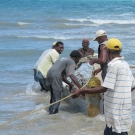
Local fisherman who worked with the Foundation to help set up fish sanctuaries.
-
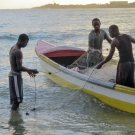
Local fisherman who worked with the Foundation to help set up fish sanctuaries.
-
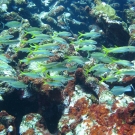
Yellowtail Snapper
-
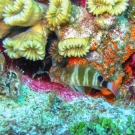
Redspotted Hawkfish
-
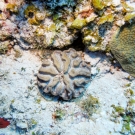
Rose Coral
-
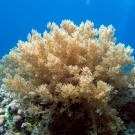
-
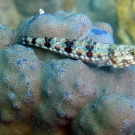
-
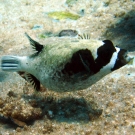
-
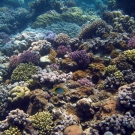
-
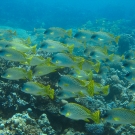
-
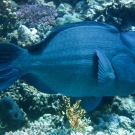
-
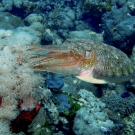
-
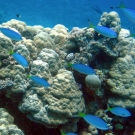
-
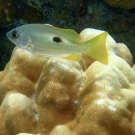
-
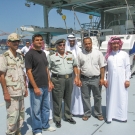
-
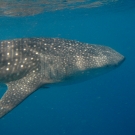
-
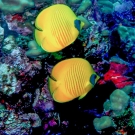
-
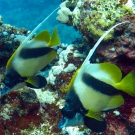
-
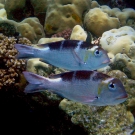
-
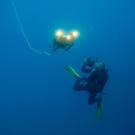
-
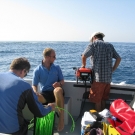
-
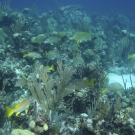
Schoolmasters
-
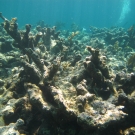
Mostly dead elkhorn coral skeletons with some live colonies.
-
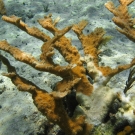
Elkhorn coral with white band disease.
-
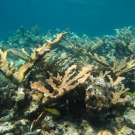
Elkhorn Coral with French Grunts and Seraeant Majors.
-
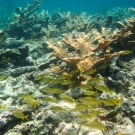
Elkhorn Coral with French Grunts and a juvenile Redband Parrotfish.
-
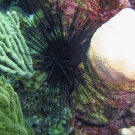
Rock-Boring Urchin
-
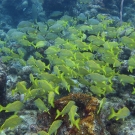
French Grunts and Bluestriped Grunts.
-
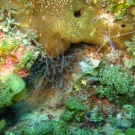
Corkscrew Anemone and Peterson Cleaner Shrimp.
-
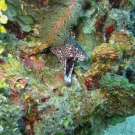
Spotted Moray
-
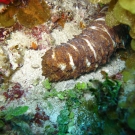
Five-Toothed Sea Cucumber
-
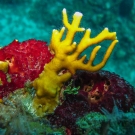
Branching Fire Coral
-
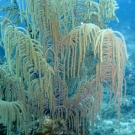
Sea Plume
-
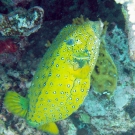
-
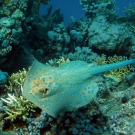
-
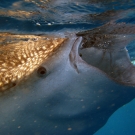
-
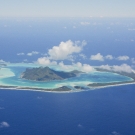
-
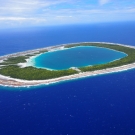
-
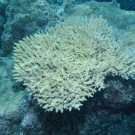
-
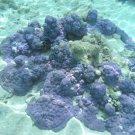
-
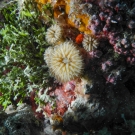
-
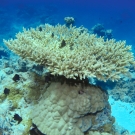
-
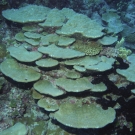
-
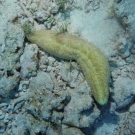
-
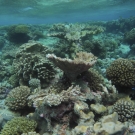
-
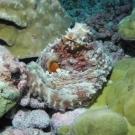
-
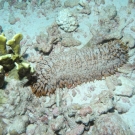
-
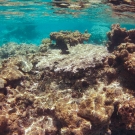
-
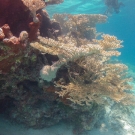
-
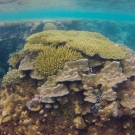
-
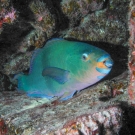
-
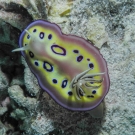
-
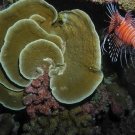
-
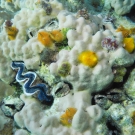
-
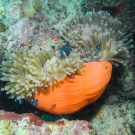
-
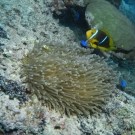
-
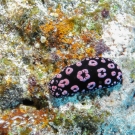
-
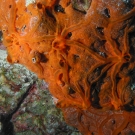
-
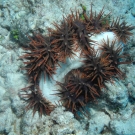
-
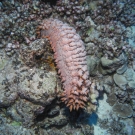
-
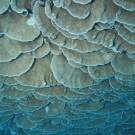
-
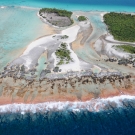
-
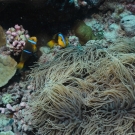
-
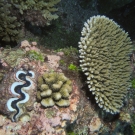
-
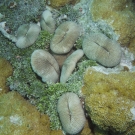
-
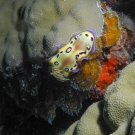
-
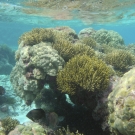
-
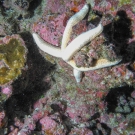
-
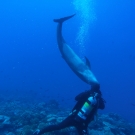
-
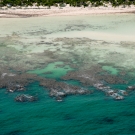
Aerial survey.
-
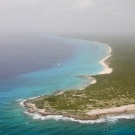
Aerial survey.
-
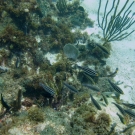
Juvenile and Initial Phase stripped parrotfish.
-
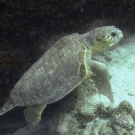
Loggerhead Turtle
-
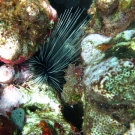
Long-Spined Urchin
-
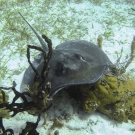
Southern Stingray
-
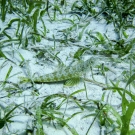
-
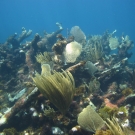
Dead elkhorn coral skeletons with soft corals growing.
-
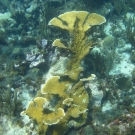
Elkhorn Coral
-
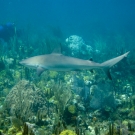
Reef Shark
-
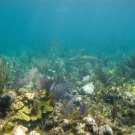
Reef Shark
-
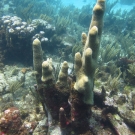
Pillar Coral
-
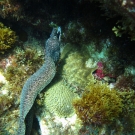
Spotted Moray
-

Krista Sherman does educational outreach.
-
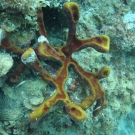
-
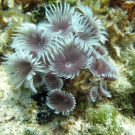
Social Feather Duster
-
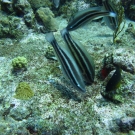
Juvenile Princess Parrotfish
-
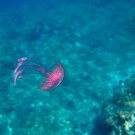
Warty Jellyfish
-
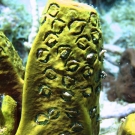
Branching Tube Sponge
-
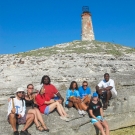
A trip to Lighthouse Island.
-
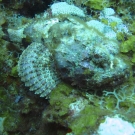
Spotted Scorpionfish
-
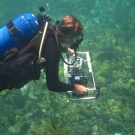
A Scientific Diver photographs a transect.
-
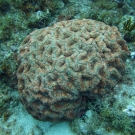
Spiny Flower Coral
-
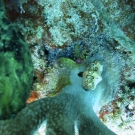
Flamingo Tongue
-
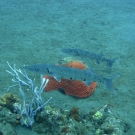
Great Barracuda
-
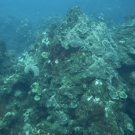
Pillar Coral
-
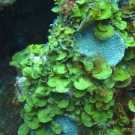
Encrusting Fan-Leaf Algae
-
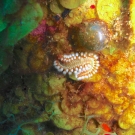
A bearded fireworm and a sea pearl.
-
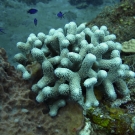
Finger coral
-
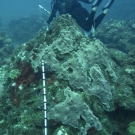
Scientific diver conducting a survey.
-
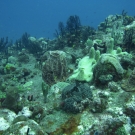
Juvenile Bluehead
-
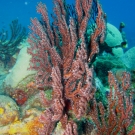
Colorful Sea Rod
-
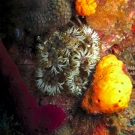
Branching Anemone
-
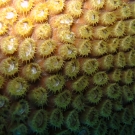
Great Star Coral
-
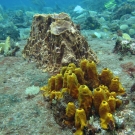
Yellow tube sponge with giant barrel sponge and juvenile bluehead.
-
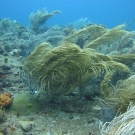
Sea plumes in the currents.
-
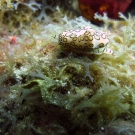
Flamingo Tongue
-
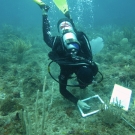
Scientific diver working on a quadrat.
-
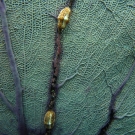
Flamingo Tongue
-
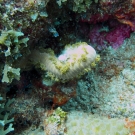
Bearded Fireworm
-
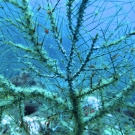
Hydroid Zoanthid
-
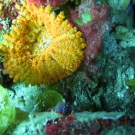
Artichoke Coral
-
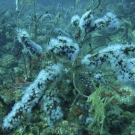
Painted Tunicate
-
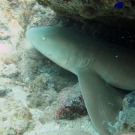
Nurse Shark
Go to page:
Articles
-
2016
Spread of the green snail Turbo marmoratus in French Polynesia
This article on the spread of the green snail in French Polynesia published in Ocean & Coastal Management was a result of research conducted by Living Oceans Foundation Chief Scientist Andrew Bruckner and Coral Reef Ecologist Alexandra Dempsey with other …
-
2015
Between, 2 June 2013 – 28 June 2013, the Khaled bin Sultan Living Oceans Foundation conducted a research mission to the Lau Province of Fiji as part of the Global Reef Expedition. The research focused on coral reefs surrounding 11 …
-
2015
Between 7 March 2015 and 3 May 2015, the Khaled bin Sultan Living Oceans Foundation conducted two coral reef research missions to the British Indian Ocean Territory (BIOT) as components of our Global Reef Expedition (GRE) program. Our primary objectives …
-
2015
The Bahamas Atlas, Atlas of Shallow Marine Habitats of Cay Sal Bank, Great Inagua, Little Inagua and Hogsty Reef, Bahamas, is the result of months of underwater research to survey and map the seafloor. The Atlas combines advanced satellite imagery, …
-
2015
Between October 26, 2014 and November 24, 2014, the Khaled bin Sultan Living Oceans Foundation conducted a coral reef research, outreach and education mission to map and characterize the shallow marine habitats and assess the status of coral reefs and …
-
2015
The Status, Threats, and Resilience of Reef-Building Corals of the Saudi Arabian Red Sea
This article on the status of Red Sea corals is a direct result of the research conduction by the Khaled bin Sultan Living Oceans Foundation during its missions to the Red Sea, including Farasan Islands (2006), Ras Al-Qasabah (2007), Al …
-
2015
Advances in management of precious corals in the family Corallidae: are new measures adequate?
Highlights A recommended minimum harvest size of 80 mm was not adopted. Corallium rubrum resources above 50 m, instead of 80 m, are protected but enforcement is inadequate. Deep C. rubrum resources are being exploited without prior stock assessments. Inshore …
-
2015
Highlights: A typology of Saudi Arabian Red Sea coral carbonate systems is developed. Using a GIS, sixteen system end-members are identified, mapped and tallied. Several types of carbonate system are present throughout the length of the Red Sea. Other carbonate …
-
2015
The Khaled bin Sultan Living Oceans Foundation conducted a research mission to Pedro Bank, Jamaica in 2012 as part of its Global Reef Expedition. This scientific article on the Status of Coral Reefs of Commercial Importance in Jamaica is a …
-
2015
Galápagos coral reef persistence after ENSO warming across an acidification gradient
The Khaled bin Sultan Living Oceans Foundation conducted a research mission to the Galápagos Islands in 2012 as part of its Global Reef Expedition. This scientific article on Galápagos coral reef persistence, written by several science team members, is a …
-
2014
Great Barrier Reef Field Report
During the month of September 2014, the Khaled bin Sultan Living Oceans Foundation conducted a research mission to the Great Barrier Reef as part of the Global Reef Expedition. In response to the some of the reef’s decline, the Great …
-
2014
This paper stems from our field research in the Galápagos Islands conducted earliler in the Global Reef expedition. It discusses marginal coral populations and how the densest known aggregation of Pocillopora in the Galápagos Archipelago is of asexual origin. Coral populations …
-
2014
The Khaled bin Sultan Living Oceans Foundation conducted a research mission to the Tuamotu and Gambier Archipelagos of French Polynesia in late 2012 and early 2013 as part of its Global Reef Expedition. This article on the significance of new …
-
2014
This paper stems from our field research in the Bahamas conducted at the start of the Global Reef expedition. It discusses how Cay Sal Bank was formed how and why it differs from the rest of the Bahamas. The Bahama …
-
2014
From 20 October, 2013 – 5 May, 2013, the Khaled bin Sultan Living Oceans Foundation conducted a research mission to the Cook Islands as part of the Global Reef Expedition. The research focused on coral reefs surrounding the islands of …
-
2014
French Polynesia Field Reports
Five French Polynesia field reports have been released for coral reef research conducted from September of 2012 through April of 2013 during the following missions of our Global Reef Expedition: Society Islands Tuamotu Archipelago Gambier Archipelago Rangiroa Austral Islands
-
2014
Between March 8, 2013 – March 23, 2013, the Khaled bin Sultan Living Oceans Foundation conducted a research mission to Rangiroa Atoll, French Polynesia as part of the Global Reef Expedition. The research focused on coral reefs surrounding Moorea and Rangiroa. The …
-
2014
Between January 14, 2013 – February 12, 2013, the Khaled bin Sultan Living Oceans Foundation conducted a research mission to the Gambier Archipelago, French Polynesia as part of the Global Reef Expedition. The research focused on coral reefs surrounding the islands of …
-
2014
Between November 14, 2012 – December 9, 2012 the Khaled bin Sultan Living Oceans Foundation conducted a research mission to Tuamotu Archipelago, French Polynesia as part of the Global Reef Expedition. The research focused on coral reefs surrounding the islands of Tahiti, …
-
2014
Between September 15, 2012 – October 13, 2012 the Khaled bin Sultan Living Oceans Foundation conducted a research mission to Society Islands, French Polynesia as part of the Global Reef Expedition. The research focused on coral reefs surrounding the islands of Mopelia, …
-
2014
Between April 10, 2013 – April 20, 2013, the Khaled bin Sultan Living Oceans Foundation conducted a research mission to the Austral Islands, French Polynesia as part of the Global Reef Expedition. The research focused on coral reefs surrounding the …
-
2014
Over a four year period, the Living Oceans Foundation has been involved in a massive scale marine habitat research project in the Red Sea. The results are now published in this first-ever atlas of the Red Sea marine habitats and …
-
2013
A research mission on coral reefs in New Caledonia conducted in association with the IRD has just ended. Over 30 days, New Caledonia coral reefs were assessed, confirming their exceptional status in the Pacific Ocean. This should provide additional motivation …
-
2013
Galápagos Coral Reef and Coral Community Monitoring Manual
The Galápagos Coral Reef and Community Monitoring Manual was developed at the request of the Galápagos National Park in response to coral surveys undertaken by the Khaled bin Sultan Living Oceans Foundation during the Global Reef Expedition. It is intended to serve as a …
-
2013
Between, 26 October, 2013 – 26 November, 2013, the Khaled bin Sultan Living Oceans Foundation conducted a research mission to New Caledonia as part of the Global Reef Expedition. The research focused on coral reefs in four locations, Ile des …
-
2013
Between September 10, 2013 – October 3, 2013 the Khaled bin Sultan Living Oceans Foundation conducted a research mission to Tonga as part of the Global Reef Expedition, focusing on coral reefs surrounding the islands in the Ha’apai group (Sep 11-21), …
-
2013
Coral reefs worldwide, even remote reefs, are impacted by global change – a combined multitude of large-scale and local stressors. COTS impacts and bleaching are key drivers of coral degradation. This scientific article on coral population trajectories looks at increased …
-
2012
Red Sea Coral Reef Trajectories over 2 Decades Suggest Increasing Community Homogenization and Decline in Coral Size Three independent line intercept transect surveys on northern Red Sea reef slopes conducted in 1988/9 and 1997/8 in Egypt and from 2006–9 in Saudi …
-
2012
Diseases, Harmful Algae Blooms (HABs) and Their Effects on Gulf Coral Populations and Communities
Diseases, Harmful Algae Blooms (HABs) and Their Effects on Gulf Coral Populations and Communities Gulf coral populations exist in a harsh environment, which only allows a small subset of the typical Indo-Pacific fauna and flora to persist and/or form viable populations (Sheppard …
-
2012
Assessment of the Community Structure, Status, Health and Resilience of St. Kitts and Nevis Coral Reefs When we first began this mission in early June, several of the researchers had their first exposure to the rapid assessment protocol we were applying …
-
2012
Global Reef Expedition Navassa Field Report March 25‐31, 2012
Global Reef Expedition Navassa Field Report March 25‐31, 2012 Navassa Island (18◦24’10’’ N, 75◦0’45’’W) is a U.S. possession that is approximately 5 km2 in area. The island lacks permanent human population. The island is comprised of a raised plateau surrounded by steep …
-
2012
Global Reef Expedition Pedro Bank, Jamaica Field Report March 10‐20, 2012
Global Reef Expedition Pedro Bank, Jamaica Field Report March 10‐20, 2012 The coral reefs located off the north coast of the Jamaican mainland are some of the best and most studied reefs in the world (Hughes 1994). In contrast, very few …
-
2012
Mapping, Characterizing and Assessing the Composition, Health and Resilience of Galápagos Coral Reefs. Between June 1-16, 2012, a multidisciplinary research team from the Khaled bin Sultan Living Oceans Foundation (KSLOF), University of Miami, University of the Virgin Islands, Pennsylvania State …
-
2012
Global Reef Expedition San Andres Archipelago, Colombia Field Report April 9-24, 2012
Global Reef Expedition San Andres Archipelago, Colombia Field Report April 9-24, 2012 The Khaled bin Sultan Living Oceans Foundation (KSLOF), in partnership with CORALINA, completed a 15 day research mission (April 9-24) on three remote banks (Bajo Nuevo, Banco Alicia, …
-
2012
Applying Habitat Maps and Biodiversity Assessments to Coral Reef Management
Applying Habitat Maps and Biodiversity Assessments to Coral Reef Management The Khaled bin Sultan Living Oceans Foundation is conducting a five year Global Reef Expedition (GRE) to map, characterize and assess coral reefs and develop tools and information to assist local …
-
2012
Factors Contributing to the Regional Decline of Montastraea annularis (complex)
Factors Contributing to the Regional Decline of Montastraea annularis (complex) Over the last 15 years the massive framework coral, Montastraea annularis (complex) has experienced a rapid decline in abundance, size and condition, and on many reefs in the western Atlantic these species …
-
2012
Revealing the Appetite of the Marine Aquarium Fish Trade: The Volume and Biodiversity of Fish Imported into the United States The marine aquarium fish trade and other wildlife consumers are at a crossroads forced by threats from global climate change …
-
2012
Red Sea Coral Reef Trajectories over 2 Decades Suggest Increasing Community Homogenization and Decline in Coral Size Three independent line intercept transect surveys on northern Red Sea reef slopes conducted in 1988/9 and 1997/8 in Egypt and from 2006–9 in …
-
2012
Factors contributing to the regional decline of Montastraea annularis (complex)
Factors contributing to the regional decline of Montastraea annularis (complex) Over the last 15 years the massive framework coral, Montastraea annularis (complex) has experienced a rapid decline in abundance, size and condition, and on many reefs in the western Atlantic …
-
2012
The Khaled bin Sultan Living Oceans Foundation (KSLOF) completed three Bahamas marine research missions during 2011: Cay Sal Bank (4/26/11-5/18/11), Great Inagua, Little Inagua and Hogsty Reef (8/1/11-8/24/11) and Andros Island (10/1/11-10/6/11). Research was undertaken by scientists from KSLOF, the National Coral …
-
2012
The Khaled bin Sultan Living Oceans Foundation (KSLOF), in partnership with The Nature Conservancy, conducted a research mission to Pedro Bank, Jamaica between March 10-20, 2012 as part of the Global Reef Expedition. The research team included scientists from KSLOF, …
-
2011
Inaguas, Bahamas and Hogsty Reef Field Report
Between 1 August 2011 and 24 August 2011, the Khaled bin Sultan Living Oceans Foundation conducted a coral reef research mission to Great Inagua, Little Inagua, and Hogsty Reef as part of the Global Reef Expedition. The research included two …
-
2011
Khaled bin Sultan Living Oceans Foundation 2011 Coral Reef Assessment Cay Sal Bank, Bahamas
Khaled bin Sultan Living Oceans Foundation 2011 Coral Reef Assessment Cay Sal Bank Bahamas The Bahamas contains three major shallow (<10 m) carbonate platforms or banks, each separated by deep ocean passages, along with a number of smaller emergent land masses. …
-
2011
A Paradigm Shift for Red Sea Fisheries Management to Enhance Recovery, Resilience, and Sustainability of Coral Reef Ecosystems in the Red Sea Shallow water coral reefs are found in tropical areas, between the Tropics of Cancer and Capricorn to a maximum …
-
2011
Cay Sal Bank, Bahamas Field Report
Between April 25-May 18, 2011, the Khaled bin Sultan Living Oceans Foundation (LOF) and our partners assessed the coral reefs and associated habitats of Cay Sal Bank, Bahamas as part of the Global Reef Expedition. The mission encompassed 20 days at …
-
2010
Quantifying the decline in Corallium rubrum populations: Reply to Santangelo & Bramanti (2010). Mar Ecol Prog Ser. 418: 299-303 In the comment on Bruckner (2009; Mar Ecol Prog Ser 397:319–332), Santangelo & Bramanti (2010; Mar Ecol Prog Ser 418:295–297) suggest that the available …
-
2010
Proceedings of the International Workshop on Red Coral Science, Management, and Trade: Lessons from the Mediterranean. EXECUTIVE SUMMARY The Italian Ministry of Agriculture and Ministry of Environment and the U.S. National Oceanic and Atmospheric Administration convened the International Workshop on …
-
2010
How U.S. Ocean Policy and Market Power Can Reform the Coral Reef Wildlife Trade
How U.S. Ocean Policy and Market Power Can Reform the Coral Reef Wildlife Trade As the world’s largest importer of marine ornamental species for the aquaria, curio, home de´ cor, and jewelry industries, the United States has an opportunity to leverage …
-
2010
Cayman Islands Coral Reef Health and Resilience Assessments
Cayman Islands Coral Reef Health and Resilience Assessments During June 2010, a team of 5-7 marine scientists surveyed 41 shallow reefs off Little Cayman, Cayman Brac and Grand Cayman. These surveys assessed benthic cover, population dynamics (size structure and condition) of reef …
-
2010
An Assessment of the Health and Resilience of Bonaire's Coral Reefs
An Assessment of the Health and Resilience of Bonaire’s Coral Reefs From July 19-26, 2010, a dedicated team of researchers completed transect surveys on 25 reefs located on the leeward side of Bonaire and the adjacent Klein Bonaire to characterize the …
-
2010
Caribbean Corals in Crisis: Record Thermal Stress, Bleaching, and Mortality in 2005
Caribbean Corals in Crisis: Record Thermal Stress, Bleaching, and Mortality in 2005 Background: The rising temperature of the world’s oceans has become a major threat to coral reefs globally as the severity and frequency of mass coral bleaching and mortality events …
-
2010
Western Atlantic Coral Reef Health and Resilience Cards
Western Atlantic Coral Reef Health and Resilience Cards The Western Atlantic Health and Resilience Cards provide photographic examples of the dominant habitat features and biological indicators of coral reef condition, health and resilience to future perturbations. Representative examples of benthic substrates types, indicators …
-
2010
Field Guide to Western Atlantic Coral Diseases
Field Guide to Western Atlantic Coral Diseases This Field Guide to Western Atlantic Coral Diseases uses standardized nomenclature and diagnostic criteria for coral diseases developed by the Coral Disease and Health Consortium (CDHC). This involves a three-tiered approach to naming diseases and a …
-
2010
Field Guide to Western Atlantic Stony Corals
Field Guide to Western Atlantic Stony Corals This Field Guide to Western Atlantic Stony Corals is a compilation of photographs of the dominant scleractinian and hydrozoan corals observed on reefs throughout the region. Depending on taxonomic sources, between 65‐75 species have been …
-
2010
Improving Restoration Approaches for Acropora palmata: Lessons from the Fortuna Reefer Grounding in Puerto Rico Detached Acropora palmata fragments (n=1857) generated by the M/V Fortuna Reefer grounding off Mona Island, Puerto Rico were secured to reef substrates or dead standing A. …
-
2010
Population Dynamics and Life History Traits of Corallium Rubrum Populations: Implications for Sustainable Management and Trade Population demographics, especially density, abundance, size structure, and morphology (branching pattern), as well as certain life history traits (e.g. growth rates, reproductive strategy, and longevity), must …
-
2010
Deep-Sea Coral Ecosystems of the United States
Deep-Sea Coral Ecosystems of the United States Coral reefs are among the most spectacular ecosystems on the planet, supporting such rich biodiversity and high density of marine life that they have been referred to as the rainforests of the sea. The coral reefs that …
-
2010
Rate and Extent of Decline in Corallium (Pink and Red Coral) Populations: Existing Data Meet the Requirements for a CITES Appendix II Listing In June 2007, the US government proposed Corallium (pink and red corals) for listing on Appendix II of …
-
2010
Implications of Coral Harvest and Transplantation on Reefs in Northwestern Dominica
Implications of Coral Harvest and Transplantation on Reefs in Northwestern Dominica In June, 2002, the government of Dominica requested assistance in evaluating the coral culture and transplantation activities being undertaken by Oceanographic Institute of Dominica (OID), a coral farm culturing both western …
-
2009
-
2009
Coral Reefs: Threats and Conservation in an Era of Global Change
Coral Reefs: Threats and Conservation in an Era of Global Change Coral reefs are iconic, threatened ecosystems that have been in existence for ∼500 million years, yet their continued ecological persistence seems doubtful at present. Anthropogenic modification of chemical and physical atmospheric …
-
2009
Crawling to Collapse: Ecologically Unsound Ornamental Invertebrate Fisheries
Crawling to Collapse: Ecologically Unsound Ornamental Invertebrate Fisheries Background: Fishery management has historically been an inexact and reactionary discipline, often taking action only after a critical stock suffers overfishing or collapse. The invertebrate ornamental fishery in the State of Florida, with …
-
2009
Coral Health and Disease in the Pacific: Vision for Action
Coral Health and Disease in the Pacific: Vision for Action “We are studying arguably the most complicated ecosystem on the face of the Earth, and it is under serious threat…..We have an incredibly important message, if this ecosystem dies, if …
-
2009
Rate and Extent of Decline in Corallium (Pink and Red Coral) Populations: Existing Data Meet the Requirements for a CITES Appendix II Listing In June 2007, the US government proposed Corallium (pink and red corals) for listing on Appendix II of …
-
2009
Progress in Understanding Coral Disease in the Caribbean
Progress in Understanding Coral Diseases in the Caribbean Coral disease research in the Caribbean initiated in 1972 with the discovery of black band disease (BDD) by Dr. Arnfred Antonius. Since this time, there has been an expansion in the number of researchers …
-
2009
Proceedings of the First International Workshop on Corallium Science, Management, and Trade
Proceedings of the First International Workshop on Corallium Science, Management, and Trade. Corallium has been intensively harvested for centuries, and both landings and population data provide strong evidence that most commercially viable Corallium beds are now depleted. Long term trends in landings from …
-
2009
Ten Years of Change to Coral Communities Off Mona and Desecheo Islands, Puerto Rico, From Disease and Bleaching Remote reefs off southwest Puerto Rico have experienced recent losses in live coral cover of 30 to 80%, primarily due to the …
-
2009
The Global Perspective of Incidence and Prevalence of Coral Diseases
The Global Perspective of Incidence and Prevalence of Coral Diseases Coral diseases occur globally in most coral reef habitats whether near human population centers or remotely offshore. They generally affect a low proportion of the susceptible species, although localized outbreaks have produced …
-
2009
2009 Annual Report of the Khaled bin Sultan Living Oceans Foundation The theme for our 2009 annual report is “People, Passion, Progress.” That slogan truly captures the essence of the Khaled bin Sultan Living Oceans Foundation. Given our scientific nature, …
-
2008
Coral Disease Handbook: Guidelines for Assessment, Monitoring & Management
Coral Disease Handbook: Guidelines for Assessment, Monitoring & Management Our research careers began in Discovery Bay, Jamaica, in the mid 1970s, where we both studied the behavior of coral reef organisms, rather than the corals themselves. At that time, living coral …
-
2008
Field Manual for Investigating Coral Disease Outbreaks
Field Manual for Investigating Coral Disease Outbreaks. Coral reefs throughout their circumtropical range are declining at an accelerating rate. Recent predictions indicate that 20% of the world’s reefs have been degraded, another 24% are under imminent risk of collapse, and …
-
2008
Proceedings of the International Cyanide Detection Testing Workshop
Proceedings of the International Cyanide Detection Testing Workshop. The International Cyanide Detection Testing Workshop was conceived to identify possible options for reducing the use of cyanide in the capture of coral reef fi shes for the marine aquarium trade and …
Go to page: